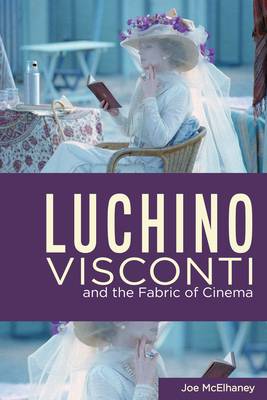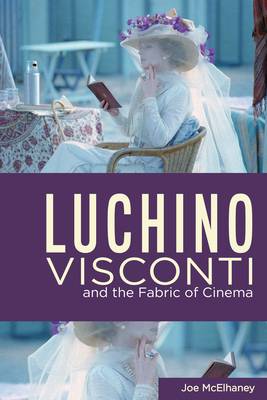
- Afhalen na 1 uur in een winkel met voorraad
- Gratis thuislevering in België vanaf € 30
- Ruim aanbod met 7 miljoen producten
- Afhalen na 1 uur in een winkel met voorraad
- Gratis thuislevering in België vanaf € 30
- Ruim aanbod met 7 miljoen producten
Omschrijving
Unveils the metaphoric and theoretical possibilities of fabric in the films of Luchino Visconti.
In Luchino Visconti and the Fabric of Cinema, Joe McElhaney situates Visconti's films as privileged and deeply expressive instances of a trope that McElhaney identifies as the "cinema of fabric" a reoccurrence in film in which textiles--clothing, curtains, tablecloths, bedsheets--determine the filming process. An Italian neorealist, Visconti emerges out of a movement immediately following WWII wherein fabric assumes crucial functions, yet Visconti's use of fabric surpasses his colleagues in many ways, including its fluid, multifaceted articulations of space and time. Visconti's homosexuality is central to this theory in that it assumes metaphoric potential in addressing "forbidden" sexual desires that are made visible in the films. Visconti's cinema of fabric gives voice to desires not simply for human bodies draped in fabric but also for entire environments, a world of the senses in which fabric becomes a crucial method for giving form to such desires.
McElhaney examines Visconti's neorealist origins in Ossessione, La terra trema, and Rocco and His Brothers, particularly through fabric's function within literary realism and naturalism. Neorealist revisionism through the extravagant drapings of the diva film is examined in Bellissima and Senso whereas White Nights and The Stranger are examined for the theatricalizing through fabric of their literary sources. Visconti's interest in German culture vis-à-vis The Damned, Death in Venice, and Ludwig, is articulated through a complex intertwining of fabric, aesthetics, politics, and transgressive sexual desire. Finally, Visconti's final two films, Conversation Piece and The Innocent, assess through fabric both the origins of Italian fascism and the political tensions contemporaneous with the films' productions.
Fabric in Visconti is often tied to the aesthetic impulse itself in a world of visionaries attempting to dominate their surrounding environments and where a single piece of fabric may come to represent the raw material for creation. This book will tantalize any reader with a keen eye and strong interest in film and queer studies.
Specificaties
Betrokkenen
- Auteur(s):
- Uitgeverij:
Inhoud
- Aantal bladzijden:
- 224
- Taal:
- Engels
- Reeks:
Eigenschappen
- Productcode (EAN):
- 9780814343081
- Verschijningsdatum:
- 2/02/2021
- Uitvoering:
- Paperback
- Formaat:
- Trade paperback (VS)
- Afmetingen:
- 152 mm x 229 mm
- Gewicht:
- 326 g

Alleen bij Standaard Boekhandel
Beoordelingen
We publiceren alleen reviews die voldoen aan de voorwaarden voor reviews. Bekijk onze voorwaarden voor reviews.







